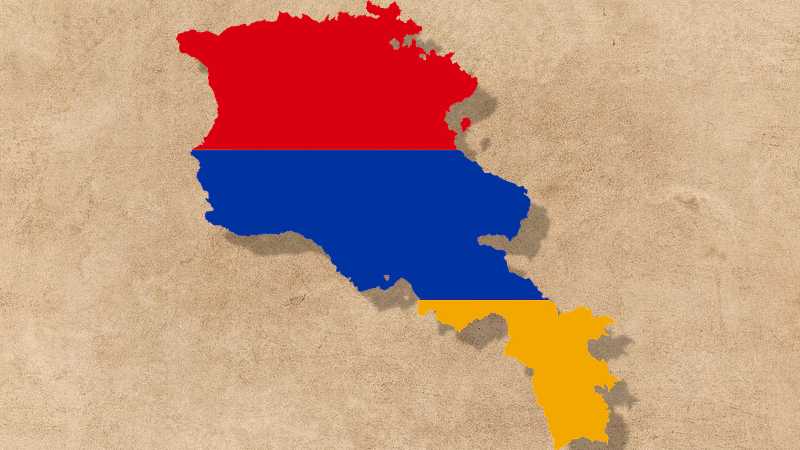
By Heydar Isayev
(Eurasianet) — Armenia has received its first batch of armored vehicles from France via Georgia.
Azerbaijan is ratcheting up its rhetoric against France over Paris’ growing military support to its archrival but so far has refrained from criticizing Georgia for facilitating the first delivery of French hardware.
On November 12, Azerbaijani Defense Ministry-aligned Caliber.az shared images purporting to show at least 20 Bastion armored personnel carriers arriving at the Poti Port, on Georgia’s Black Sea coast.
APM Terminals, which operates the Poti Port, meanwhile, confirmed on November 14 that a “specific cargo” was received from France and sent on to Armenia. “In the absence of clear instructions [to the contrary] from the Georgian government and any restrictions from international regulators, APM Terminals Poti, as a multipurpose port in Georgia and the region, had no right to reject without basis a cargo that is not under sanctions,” the company told RFE/RL.
Georgian Foreign Minister Ilia Darchiashvili gave his own confirmation of the arms transit in an interview with Georgian Public TV on November 14.
He referred to Armenia and Azerbaijan as both “brotherly and friendly” nations and said that both have the right to use Georgian territory for transit “on equal terms.”
“All countries have the right to have defense forces and all countries have the right to acquire conventional hardware and weapons permitted under international agreements. Georgia’s position is that both countries should be allowed to use our country for transit.”
Armenia’s Defense Ministry, for its part, neither confirmed nor denied the transfer of the vehicles.
Georgia’s role in the arms transfer was noted in both Armenia and Azerbaijan, but not at the official level.
“What is most important is that Georgia is not hindering the logistics, despite [Azerbaijani President Ilham] Aliyev’s attempts to put pressure on Tbilisi,” Leonid Nersisyan, Armenian military analyst, wrote on X.
An editorial on Minval.az, a pro-Azerbaijani government analysis website, called the transfer a “stab in the back” by Georgia against its strategic partner Azerbaijan. The commentary said that Azerbaijani energy supplies, as well as pipelines carrying Azerbaijani oil and gas through Georgia, were crucial to Georgia’s security and economic well-being, and lamented that now, the leadership in Tbilisi has “chosen to curry favor with France at the expense of Azerbaijan’s interests.”
Azerbaijan’s Foreign Ministry, meanwhile, condemned France over the hardware transfer but made no mention of Georgia.
“Against the backdrop of smearing campaigns and destructive actions by France against Azerbaijan in the region, these steps, which adds to the militarization policy of Armenia, attests to the fact of France’s erroneous interests in the region,” the English version of the statement read. “Armenia and France should end armament and militarization policy in the region, and finally understand that there is no alternative to peace and stability in the region.”
The Armenian and French defense ministers signed deals on October 23 under which Armenia will purchase radar systems and other equipment, including anti-aircraft systems, from French manufacturers, and France will help train and reform the Armenian armed forces.
“France and the French people are by our side, a fact that deserves our highest appreciation,” Armenian Defense Minister Suren Papikyan said at the signing of the deal.
The delivery of French APCs was not mentioned in initial official statements about that deal.
Azerbaijan has long been critical of France over its pro-Armenian stance in the Karabakh conflict, especially during the peace process that followed the 2020 war between Armenia and Azerbaijan. Now that Azerbaijan largely resolved the Karabakh conflict in its own favor, it still opposes France’s involvement in the Armenia-Azerbaijan peace negotiations as a mediator.
In early October, President Aliyev refused to attend a meeting in Spain where he was scheduled to meet the Armenian Prime Minister, citing the exclusion of Turkey, Azerbaijan’s closest ally, from the would-be multilateral talks, and the inclusion of France.
Azerbaijan has recently begun using its chairmanship of the Non-Aligned Movement (NAM) to position itself as a global leader in the fight against what it calls French “neocolonialism.”
Baku recently hosted a neocolonialism conference that featured invitees from independence movements in New Caledonia, Corsica, French Polynesia and French Guiana.
Hikmat Hajiyev, Aliyev’s senior foreign policy advisor, told the conference that Azerbaijan will help French overseas territories to continue with their “struggle, and political freedom ambitions.”
“We will raise the opinions expressed here at the level of the UN and other international organizations. Our country was deprived of independence for many years. As a state, we know what occupation is,” he said.
Heydar Isayev is a journalist from Baku.
